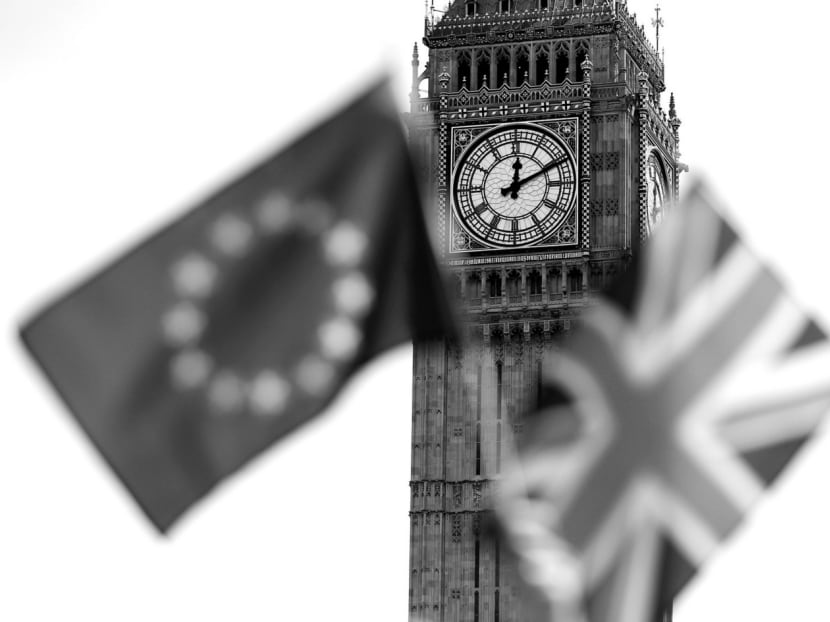Why the lure of protectionism will grow
One of the surprises of the 2008 global financial crisis is that the “great recession” that followed did not trigger much of a protectionist backlash.

The United Kingdom’s vote in June in favour of Brexit showed that even longstanding existing agreements can no longer be taken for granted. Photo: Reuters
One of the surprises of the 2008 global financial crisis is that the “great recession” that followed did not trigger much of a protectionist backlash.
Developments this week suggest that, in the absence of more enlightened and coordinated political leadership, this may be changing.
As output collapsed after the financial system’s “sudden stop” in the autumn of 2008, and as a global depression loomed, there were fears that countries would give in to the temptation to adopt protectionist trade measures as a way to promote their own growth at the expense of others.
This was avoided for two major reasons: The conviction that such beggar-thy-neighbour policies were likely to be ineffective — if not counter-productive — over the longer term, and the willingness and ability of the Group of 20 (G20) leaders to adopt a comprehensive pro-growth policy agenda at their April 2009 summit meeting.
But what worked well then was not sustained.
Rather than use the London gathering as a foundation to maintain a comprehensive pro-growth policy, advanced economies, one after the other, slipped into excessive and prolonged reliance on just their central banks.
And because monetary policy tools, including innovative unconventional ones, are ill-suited to sustainable fixes for the ailments of advanced countries, macroeconomic outcomes repeatedly fell short of expectations and failed to promote inclusive prosperity.
This protracted period of low growth and rising inequality is now threatening the consensus in favour of globalisation and regional integration that has underpinned economic thinking for decades.
As a result, progress on liberalisation and cross-border integration is hitting a wall.
This week, both France and Germany publicly raised questions about the Transatlantic Trade and Investment Partnership being negotiated by the European Union and the United States.
French officials went as far as to urge EU officials in Brussels to halt the discussions.
In addition, the Trans-Pacific Partnership, the trade agreement that the US and 11 Pacific Rim nations signed in February, seems increasingly unlikely to be ratified, given the limited appetite for any such deals in the US Congress.
It is not just negotiations on new free trade arrangements that are stalling. The United Kingom’s vote in June in favour of Brexit showed that even longstanding existing agreements can no longer be taken for granted.
Meanwhile, the European Commission’s decision this week to impose a US$14 billion (S$19.08 billion) tax bill on Apple is irritating the Irish government, which had reached the initial agreement with the company, as well as US officials.
All of these events are heavily influenced by a broader common force: Popular dissatisfaction with enduring low growth and rising inequality, both of which have fuelled the popularity of anti-establishment movements that advocate nationalistic policies.
Indeed, the next step could involve a more forceful push to go beyond simply countering future regionalisation and globalisation initiatives to weakening existing ones.
The North American Free Trade Agreement and the EU are already in the crosshairs of anti-establishment politicians.
In response to these political winds, more governments have been tilting away from their traditional free trade orientation and towards a more insular stance.
The weak version of this trend is to stress that trade needs to be fair and not just free.
The stronger version is to promote import-substitution, as well as to consider other measures that discourage inflows of foreign goods and money.
Conventional politicians — hoping to minimise risk to their re-election — justify their use of a tone that recognises and accommodates these strengthening protectionist forces by arguing that the hit to global trade and cross-border investment would be much more durable and damaging if anti-establishment movements came to power.
In the shorter term, these developments represent yet another headwind to global trade and growth.
To minimise the adverse consequences, one possibility would be for countries to come together —starting with the G20 summit this week — and make credible commitments to enacting more detailed measures consistent with the rhetoric and commitments made at previous gatherings.
That, however, is unlikely, given that many advanced country leaders find themselves constrained by a fraught political atmosphere at home.
Instead, the election calendar in Europe and the US means we should expect a further shift, especially in the short term, away from cross-border integration across regions or within them. BLOOMBERG
ABOUT THE AUTHOR:
Mohamed El-Erian is the chief economic adviser at Allianz SE.






